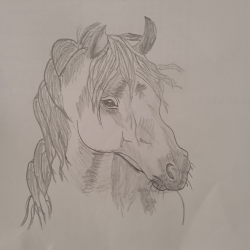

This article is about all kinds of games in general. For games played on consumer electronics, see Video Games. For other uses, see Game (disambiguation).
Games are a structured form of play, usually played for entertainment or enjoyment, and sometimes used as an educational tool.[1] Games can be used primarily for work or for money. It differs from art, which is the expression of aesthetic or ideological elements. However, the distinction is not clear, and many games are also categorized as work (such as spectator sports or professional players in games) or art (such as mahjong, solitaire, or artistically laid out puzzles or games such as video). game).
Ancient Egyptian ivory game board in the exhibition of Tutankhamun's treasure in Paris (2019)
Ancient Egyptian gaming board inscribed for Amenhotep III with separate sliding drawer, from 1390 to 1353 BC, made of glazed faience, dimensions:
5.5 × 7.7 × 21 cm, in the Brooklyn Museum (New York City)
The oldest full deck of playing cards known, the Flemish Hunting Deck, c. 1475–1480, paper with pen, ink, opaque paint, glazes, applied silver and gold, in the Metropolitan Museum of Art from New York City
Children's Games, 1560, Pieter Bruegel the Elder
Gaming table, circa 1735, wood and ivory marquetry, overall:
78.7 x 94 x 54.6 cm, Cleveland Museum of Art (Cleveland, Ohio, US)
Game are very must part of our lifes making.
The Card Players, an 1895 painting by Paul Cézanne depicting a card game, in Courtauld Institute of Art (London)
Games are sometimes played purely for enjoyment, sometimes for achievement or reward as well. They can be played alone, in teams, or online; by amateurs or by professionals. The players may have an audience of non-players, such as when people are entertained by watching a chess championship. On the other hand, players in a game may constitute their own audience as they take their turn to play. Toys are often part of the entertainment of children's play, and games are not the same thing.Toys are generally playable indefinitely, but current rules apply to games.Then the features are optained.
The main components of games are objectives, rules, challenges, and interactions. Games are generally mental or physical, and often both. Many games develop hands-on skills, serve as a form of practice, or otherwise serve an educational, simulation, or psychological role. The royal games of Ur, Senate and Mancala are some of the oldest known games. [Four]
Thanx for readings guys..






